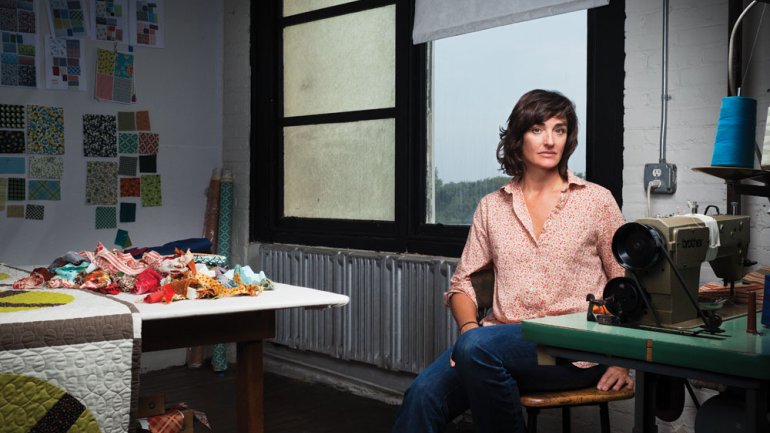The Craft of Design: Denyse Schmidt
The Craft of Design: Denyse Schmidt
Who doesn’t love quilts, or at least the idea of a quilt? They’re decorative and useful, suggesting warmth, family, and tradition. They go on both walls and beds. But until recently, the ones widely available on the market – not one-of-a-kind or “art” quilts – tended to have a generic, ersatz-homespun look.
Denyse Schmidt noticed this and saw a niche for herself. A graphic designer trained at the Rhode Island School of Design, she loved handwork, having made things all her life. Why not bring a fresh aesthetic – one inspired by the simple beauty and sophistication of historic American quilts – to quilts for contemporary interiors? She crafted a few original pieces to try out the idea, and it took off.
Today Denyse Schmidt Quilts is a vibrant, multifaceted brand, with an enthusiastic following among savvy consumers and interior designers. The quilts come in two main collections: Couture, hand-stitched by Amish women in Minnesota, and Works, pieced and machine-quilted by freelance crafters in Schmidt’s studio, located in a former textile factory in the old industrial city of Bridgeport, Connecticut. Through licensing deals with other firms, she also designs fabrics and quilt patterns aimed at hobbyists, as well as books and stationery.
Schmidt has had to devise ways to get her quilts made in quantity while maintaining high quality and a handmade feel. (She does make the occasional one-of-a-kind commissioned piece.) “I thought, how can I invent ‘production-friendly’ methodologies to make this sustainable?” Her model – “hands-on manufacturing,” she calls it – allows her to take a holistic approach. “My parents were engineers, so I have that mentality. When I design, I look for the whole process to make sense, start to finish,” she says. “And each part is satisfying in its own way.”
Click here to read more profiles of designer/craftspeople.
Joyce Lovelace is American Craft's contributing editor.




